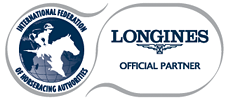IFHA News No.4 (2010)
To: IFHA/FIAH Members
From: Aki AKITANI (Deputy Secretary General)
Date: May 12, 2010
REF: 33rd Asian Racing Conference in Sydney
The world biggest conference in the racing industry, the 33rd Asian Racing Conference, was held in Sydney, Australia.
The main theme of the Conference was ‘Racing Into The Future’ and variety of subjects were presented and discussed in the Business Sessions organized between 12th and 14th April.
Here are the important points in the Business Sessions.
SESSION 1: The Future Customers
Chairman of the Asian Racing Federation, Dr. Koji SATO made a key note speech. He stressed that in order to bring attentions from future generations to racing, ARF needs;
- Working together as a whole to compete against other sports or Casino industries.
- Promoting more international competitions and exchanges
- Utilizing new communication tools like social networking technologies
- Providing information from customers’ point of view
He also put an importance on extending helping hands to developing countries whose developments are essential to further prosperity in Asian racing regions.
There were nine other speakers in this Session and they were Mr. Peter Sheahan (International Business Strategist), Mr. Timo Lumme (IOC), Mr. Rod Fitzroy (Victoria Racing Club), Mr. John O’Neill AO (Australian Rugby Union), Mr. Alan Jones AO (National Broadcaster, etc), Mr. Dion Appel (Lifelounge Pty Ltd), Mr. Nic Coward (BHA), Ms. Scarlette Leung (HKJC) and Mr. Kaoru OBATA (JRA).
Speakers mostly focused on what and how they did to expand their customer base, especially younger generations, and Mr. Sheehan and Mr. Appel were particularly showing how to promote racing to the future customers. Mr. Appel said ‘Firstly, racing industry needs to understand the market, secondly speak with them in their terms and then we need to make the most out of modern technologies and communicating tools.’
The theme of Mr. Alan Jones AO was ‘Racing’s Destiny; The Path to Success’. He made several important points to look into and they were;
- Racing needs unity
- Betting Exchange is the path to ruin
- Artificial Insemination issue needs to be judged by common sense
- Proper control of equine infectious diseases like EI
- Huge potential in China
SESSION 2: Animal Welfare
Animal Welfare is not a new issue in the industry. It has been there for a long time and dealt by each jurisdiction according to its own social requirements and responsibilities. But the issue has been omnipresent and it is about time for the racing industry to discuss it and think about what we can do for the animal.
A keynote speaker of this Session, Ms. Bo Derek, Director of Californian Horseracing Board, stressed that the racing industry needs to be proactive to the issue and needs to be seen as a caretaker of the animal, abolishing all cruelties all the cost.
Other panelists were Ms. Hether Neil (RSPCA Australia), Mr. Louis Romanet (IFHA), Mr. Brenda Graham (Wool Council Australia) and Mr. Peter McGauran (Thoroughbred Breeders Australia & Aushorse).
Ms. Neil said she is not in favor of watching jump races and races for two years old.
Mr. Romanet said that because of the development of high technologies like high-definition or large flat screen TV, more and more racing fans started to see jockeys using whips to horses. He showed his opinion that racing industry needed to be proactive and hoped that in the future, using whips could be limited only to avoid dangerous situation.
Mr. Romanet also said that he would set up ‘Animal Welfare Committee’ within the IFHA structure to deal the issue internationally.
SESSION 3: Riders Safety & Training
There were four speakers in this Session. Summary of the each speaker is as follows;
Dr. Caron Jander (ARB)
Her presentation started with working as a jockey is quite a high risk occupation. Then she focused on the importance of conducting medical screening to jockeys and also touched upon banned and prohibited substances.
Dr. Andrew McIntosh (Biomechanics and Gait Laboratory)
Equestrian Helmets are commonly used in racing but his theory is that falls in racing may not be protected well with the current standard.
He showed results of a series of laboratory impact tests performed on seven helmets with varied range.
He also made prototype helmets using suitable liner materials with encouraging test results.
Mr. Simon Cooper (New Zealand Thoroughbred Racing)
He performed a survey on apprentice jockeys and came up with several interesting points. He stressed an importance of training and education by quoting a leading British academic, Sir Claus Moser `education costs money but then so does ignorance.’
Mr. Doug Reed (University Arizona)
He conducted a survey about the need for international movement of labor in the racing industry, and mentioned the importance of cooperation among countries to share information.
SESSION 4: Business & Wagering
This Session consisted of two parts, presentations and panel discussion.
There were four speakers for presentations and they were Mr. Tze Ming Soon (Singapore Turf Club), Mr. Elmer Funke Kupper (Tabcorp), Ms. Jenny Owen and Mr. Koichi YAMAMOTO (Dentsu Inc).
Mr. Soon focused on how to increase customers by coping with aging racing fans and general social stigma of horseracing. He also mentioned about severe competition with casinos and also addressed about a threat of illegal wagering operators.
Mr. Kupper stressed that wagering and media need to come together and cooperation, like co-mingling among tote operators is a key factor to fight against a threat of bookmakers. He also mentioned about the necessity of 24/7 operation.
Ms. Owen addressed that betting industry accounts for 13% of legal gambling spending across the top 25 nations in 2006 but the share of it has been declining over the past several years. She pointed out that as the racing has a huge potential, it needs to utilize online technologies and to increase profitability.
Mr. Yamamoto pointed out that there is information overload especially among younger generations and it becomes harder and harder to penetrate them. He stressed that ‘real time approach’, ‘low budget’, ‘Interact ability’, ‘creating affinity’ and ‘interest sharing and searching’ are key subjects.
In the latter session, there held ‘The Great Debate’, by inviting racing administrators, betting exchange operator and bookmakers. Mr. Andrew Harding (ARB) played a facilitator and there were six panelists, Mr. Peter V’Landys (Racing NSW), Mr. Peter Savill (Former BHB), Mr. Nic Coward (BHA), Mr. Edward Wray (Betfair), Mr. Alan Eskander (Betstar) and Mr. Con Kafataris (Centrebet).
Racing side demanded more contributions from wagering operators in order sustain the industry. On the other hand, wagering operators needed lower take out rate so that horseracing can keep attracting customers, otherwise racing would lose customers out to other betting products.
SESSION 5: Racecourse Facilities & Track Technologies
This Session mainly focused on a new trend in the industry, synthetic surfaces. There were eight panelists, Mr. Frank Gabriel (Dubai Racing Club), Mr. Terry Muir (E Par), Dr. Sue Stover (University of California), Mr. Warren Williams (Queensland Racing Ltd), Mr. Tze Ming Soong (Singapore Turf Club), Mr. Lindsay Murphy (Sydney Turf Club), Mr. Andrew Small (Racing NSW) ans Mr. Alex Waldrop (NTRA) and three of them made presentations.
Dr. Stover performed a research on synthetic surfaces comparing with dirt surfaces, especially in terms of safety, and concluded that synthetic surfaces sustain higher safety standard although she needed continuous research down the road.
There were different opinions about introduction of synthetic surface. Some suggested it should play a supplemental role to turf track and other mentioned importance of introducing suitable material to local climate and environment.
SESSION 6: Racing
The Session consisted of two parts, the first one was a panel discussion about international racing and the second part was presentations about medication.
The panelist in the first part were, Mr. David Holdgate (Satellite Information Services Holdings), Mr. Joe Janiak (Trainer), Mr. Greg Avioli (Breeders’ Cup Ltd), Mr. Henry Plumptre (Darley), Mr. Bill Nader (HKJC), Mr. Louis Romanet (IFHA), Mr. Roger Beale AO (Price Waterhouse), Mr. Behcet Homurlu (Jockey Club of Turkey) and Mr. Rob Hines (Racing Victoria).
Discussed major topics were; importance of promotion of international races, international movement of horses, quarantine, international co-mingling, necessity of providing better quality of racing pictures and information and international races in Turkey.
The summary of each presentation on medication is as follows;
Hon. John Fahey AC (World Anti Doping Agency)
He showed the principle and the practices of doping control taking the Olympic Games as examples. He stressed that across-the-board approach is the key and same rules should be applied to all countries and sports in order to uphold integrity and popularity.
Dr. Paul-Marie Gadot (France Galop)
Because of the further advancement of technologies, now laboratories can detect traces of legitimate medical treatments at irrelevant levels which will not at all affect horse performances. He stressed that we need to listen carefully to what the modern society wants from us, otherwise horseracing would lose credibility.
Prof. Kenneth William Hinchcliff (University of Melborne)
He showed his research and analysis on using furosemide on the day of racing. His research concluded that administering furosemide affects performances but at the same time being effective to EIPH (Exercise Induced Pulmonary Hemorrhage). He said there would be a room for discussion about administering furosemide in terms of animal welfare.
Dr. Brian Stewart (HKJC)
Permitted medications is a seductive concept for better quality of life for athletic horses, competing in equal play ground, etc but they would also lead to over-using, public misconception, long term negative effects especially on breeding, etc. He suggested that racing authorities need to look into this subject from animal welfare and safety, waging product and impact on breeding.
SESSION 7: Racing In The Region
This Session featured practices in three developing countries, Mongolia, Philippines and Mauritius. Each speaker made video presentation and interesting approaches were demonstrated.
Mr. Myeegombo Enkhbold (Deputy Prime Minister Mongolia)
He showed local feature races in which more than 300 horses between 2 and 5 years old horses participate and running over 10 to 25 kilometers.
He also mentioned there held racing competitions among local horses which were cross-bred with imported thoroughbreds from UK, Russia and the US.
Mr. Alfonso R. Reyno Jr (Manila Jockey Club)
He showed history of how Manila Jockey Club revitalized horseracing after he has taken a helm of its management since 1995. His dedication increased every figure about racing, prize money, the number of outlets and the number of racing days. As the penetration rate of mobile phone is relatively high, online wagering would be introduced in the near future.
Mr. Jean Marc Ulcoq (Mauritius Turf Club)
He showed horseracing was deeply rooted into the society and they would celebrate bicentennial anniversary of racing in 2012.
He said that although it was not easy to increase the number of racing days because of small horse population and climate issue, they have started jockeys’ competition by inviting world-class jockeys since 2007 which attracted huge attention and those races were sold through PMU network for the first time in 2009.
SESSION 8: Hypothetical
There participated eight racing experts as panelists and discussed about wide range of important topics which the racing industry is facing. Mr. Alan Brown (Racing NSW), Mr. Hiroshi ITO (JRA), Mr. Guy Sergent (NZTR Board), Mr. Greg Avioli (Breeders’ Cup Ltd), Y.A.M Tunku Dato’ Seri Shahabuddin DK, SPTJ, AO (Selangor Turf Club), Mr. Bill Nader (HKJC), Mr. Rob de Kock (National Horseracing Authority of Southern Africa) and Mr. Louis Romanet (IFHA) were on the podium.
Topics covered were ‘International Harmonization of Raceday Rules’, ‘Effective Management’, ‘International Co-Mingling’ and ‘Developing Countries and Regions’.
There was a strong consensus that racing industry needs to promote international co-mingling more proactively but at the same time it was pointed out that the industry has not made much progress because of judicial issues, different betting terminologies, different racing rules and taxation issues.
Next Asian Racing Conference is to be held in Turkey, June 2
|



